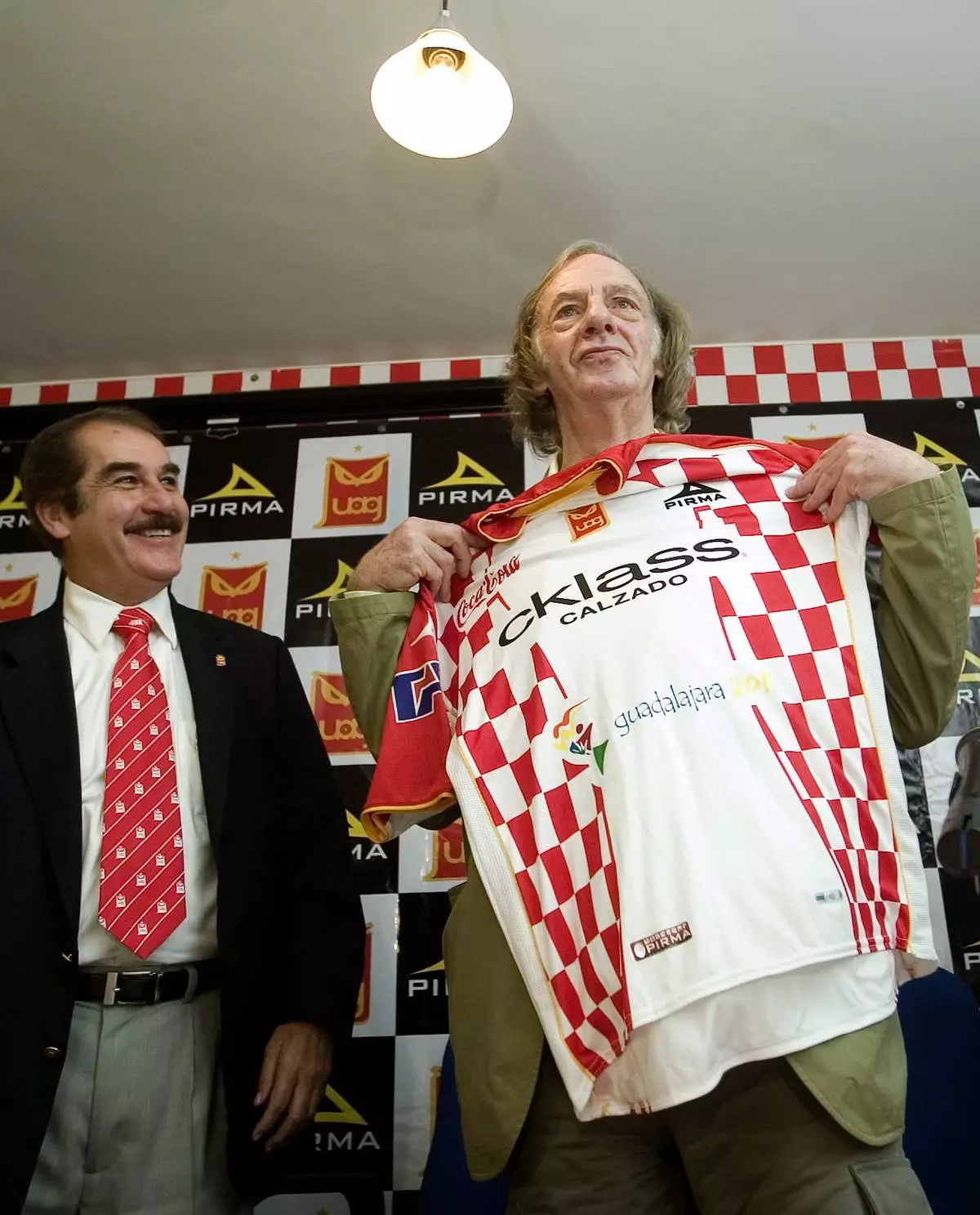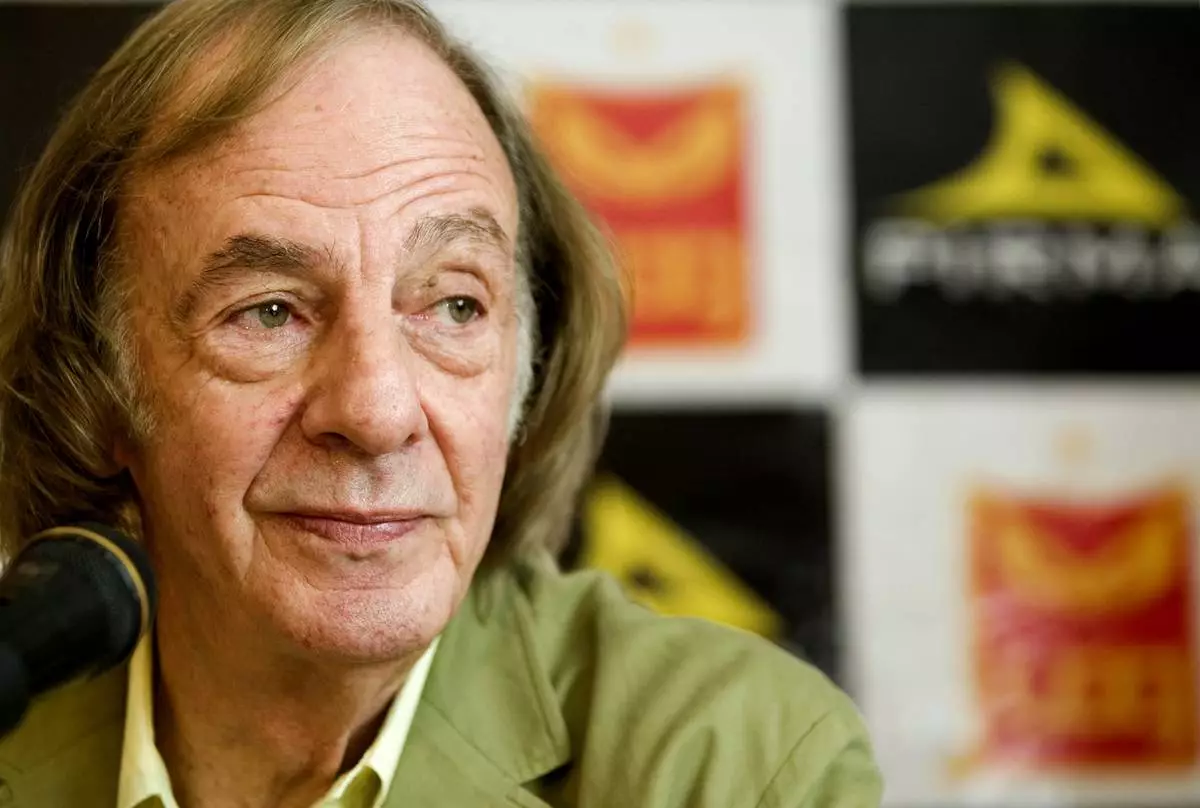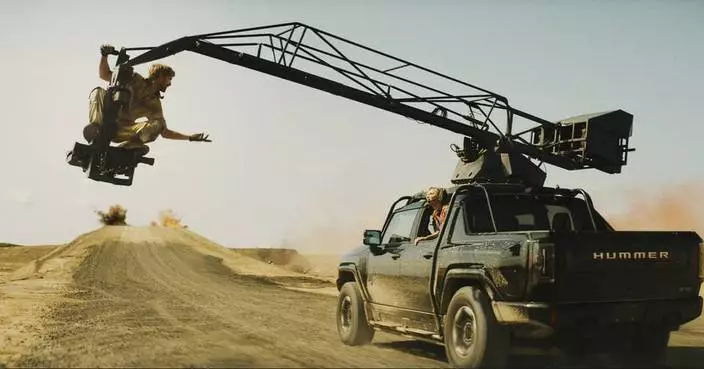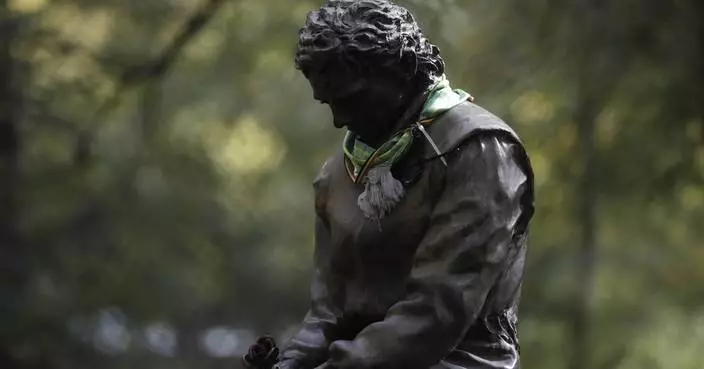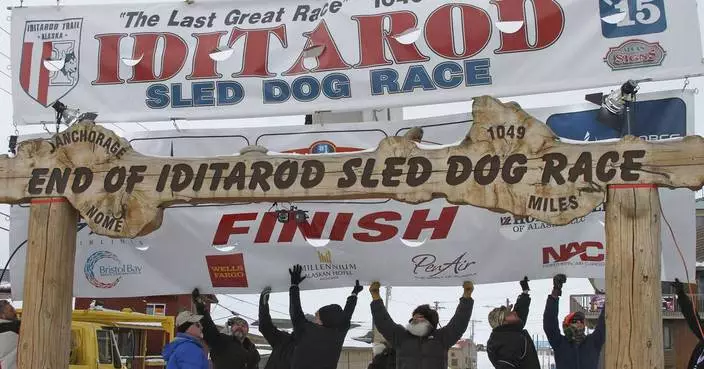The 46th running of Alaska's famed Iditarod Trail Sled Dog Race kicks off Saturday amid the most turbulent year ever for the annual long-distance contest that spans mountain ranges, the frozen Yukon River and dangerous sea ice along the Bering Sea coast.
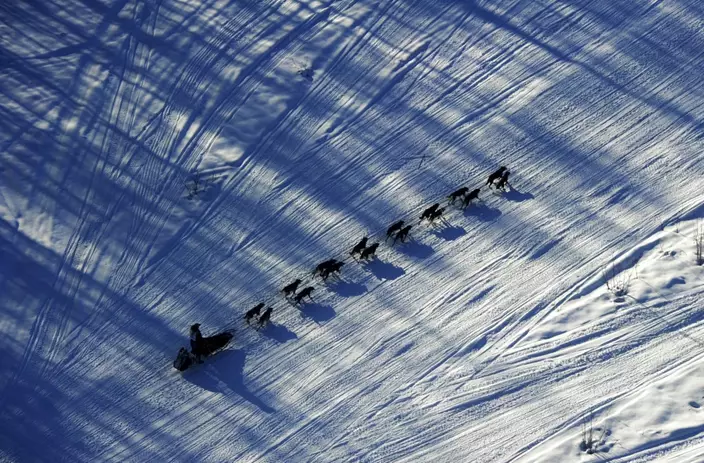
FILE - In this March 2, 2014, file photo, musher Nathan Schroeder drives his dog team down the trail just after the start of the Iditarod Trail Sled Dog Race near Willow, Alaska. (Bob Hallinen/Anchorage Daily News via AP, File)
Among the multiple problems: a champion's dog doping scandal, the loss of major sponsor Wells Fargo, discontent among mushers and escalating pressure from animal rights activists, who say the dogs are run to death or left with serious injuries. The Iditarod has had its ups and downs over the decades, but the current storm of troubles is raising questions about the future of the 1,000-mile (1,600-kilometer) race that for many symbolize the contest between mortals and Alaska's unforgiving nature.
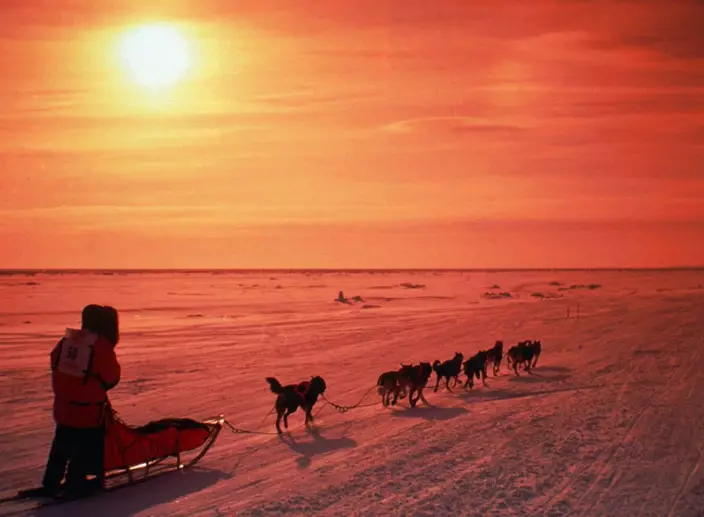
FILE - In this March 1996, file photo, a musher drives his team across the frozen Norton Sound near Nome, Alaska, during the Iditarod Trail Sled Dog Race. (AP Photo/Al Grillo, File)
Leo Rasmussen, one of the race's founders, predicted the Iditarod is heading for extinction within the next few years, given an "extreme lack of organization" from its leadership.
"You can only burn so many stumps, you know, and you're done," he says.
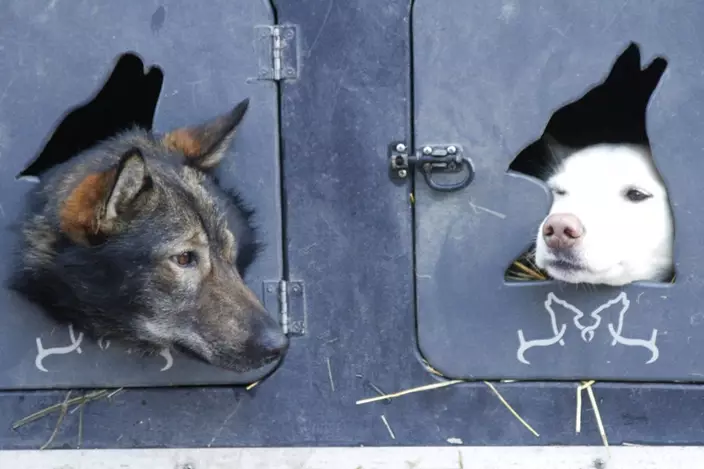
FILE - In this March 7, 2015, file photo, two dogs peek out from the look out holes on the truck of musher Justin Savidis of Willow, Alaska, before the ceremonial run of the Iditarod Trail Sled Dog Race in Anchorage, Alaska. (AP Photo/Mark Thiessen, File)
Iditarod CEO Stan Hooley acknowledged organizers have weathered a dark time but disagreed the race faces an uncertain future.
"There's always going to be an Iditarod," he said. "I consider this more of a growing process than anything else."
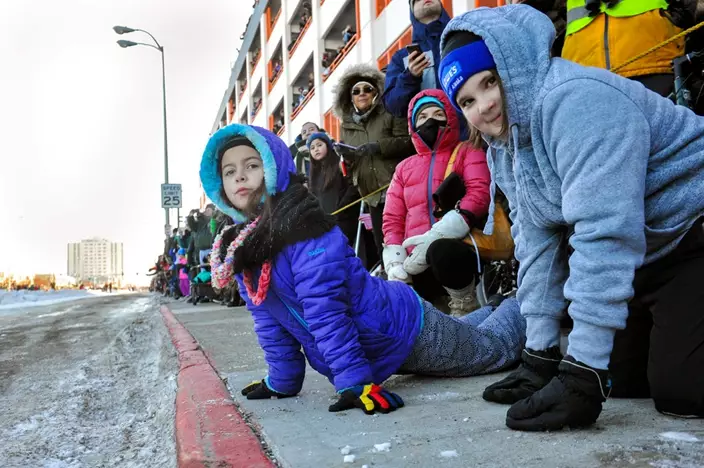
FILE - In this March 4, 2017, file photo, Nayla Timmer, 8, left, and Delayna Barnum, 12, of Chugiak, find a lower angle to help their view of dogs and mushers during the ceremonial start of the Iditarod Trail Sled Dog Race in Anchorage, Alaska. (AP Photo/Michael Dinneen, File)
The Iditarod's governing board disclosed in October that four dogs belonging to four-time winner Dallas Seavey tested positive for a banned substance, the opioid painkiller tramadol, after his second-place finish last March behind his father, Mitch Seavey. It faced criticism for not releasing the information sooner.
The Iditarod said it couldn't prove Dallas Seavey administered the drugs to his dogs, and didn't punish him. Since then, the rules have been changed to hold mushers liable for any positive drug test unless they can show something beyond their control happened.
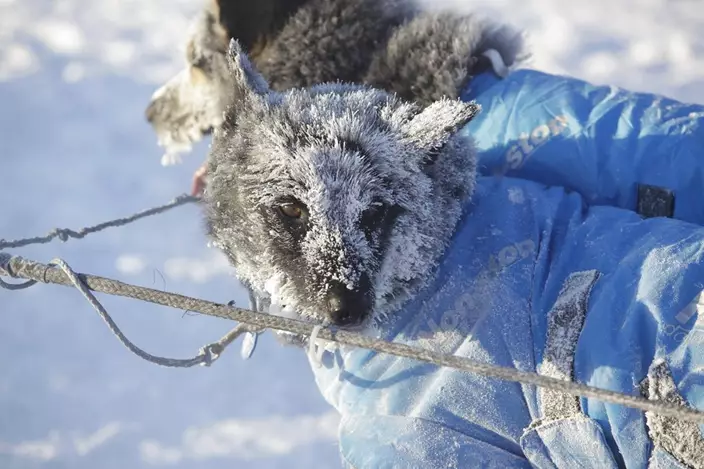
FILE - In this March 7, 2017, file photo, one of Norwegian musher Joar Leifseth Ulsom's dogs waits at the Manley Hot Springs checkpoint during the Iditarod Trail Sled Dog Race in Manley Hot Springs, Alaska. (Matt Buxton/Fairbanks Daily News-Miner via AP, File)
The younger Seavey, who denied administering tramadol to his dogs, also came under scrutiny when the People for the Ethical Treatment of Animals, a longtime race critic, complained about a kennel operated by the musher based on allegations of sick, injured or dead dogs. Local investigators said they found no evidence of animal cruelty in the matter.
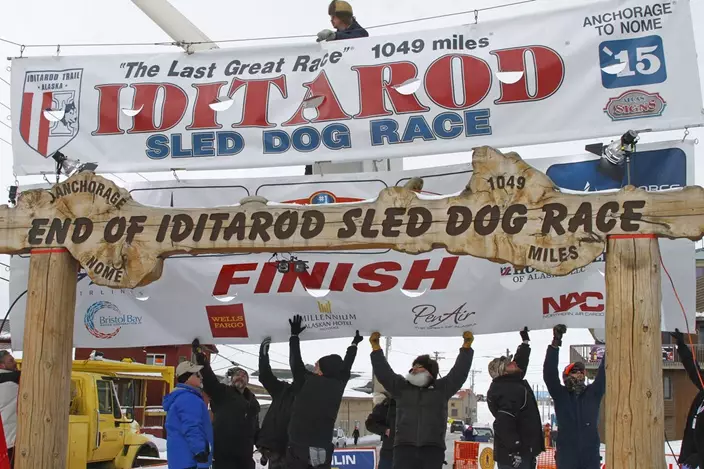
FILE - In this March 16, 2015, file photo, volunteers help raise the Iditarod finishers banner at the burled arch finish line in Nome, Alaska. (AP Photo/Mark Thiessen, File)
Dallas Seavey is sitting out this year's race in protest over the handling of the doping investigation. Instead, he is in Norway to participate in another sled dog race, the Finnmarkslopet, which begins March 9.
The deaths of five dogs connected to last year's race also played a role in increasing pressure from animal rights activists. Three of the deaths occurred during the race, and two dogs died after being dropped from the competition. One got loose from a handler and was hit by a car, and another died as it was flown to Anchorage, likely from hyperthermia. The race went without dog deaths in several recent years.
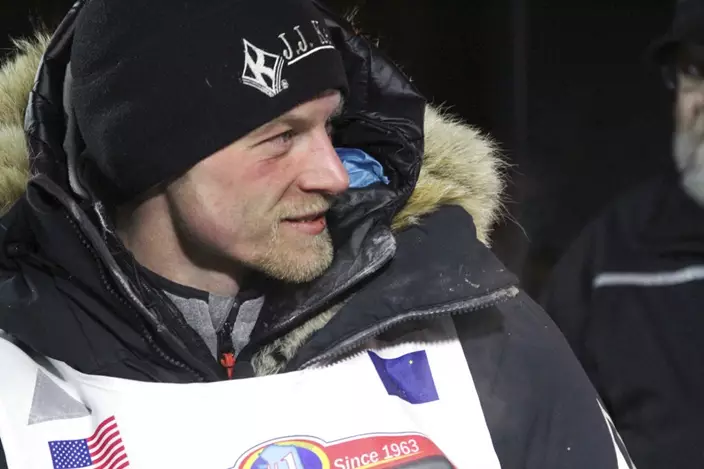
FILE - In this March 15, 2016, file photo, Dallas Seavey talks to officials after finishing the Iditarod Trail Sled Dog Race in Nome, Alaska. (AP Photo/Mark Thiessen, File)
PETA says that for the first time, about a dozen of its members will protest the race in person at the ceremonial and competitive starts and at the finish line, in the remote coastal town of Nome. They plan to bring five headstones with the names of the dogs that died in 2017.
By PETA's count, the dog deaths bring the total to more than 150 over the Iditarod's history. Race officials dispute those numbers but have not provided their own despite numerous requests from The Associated Press.
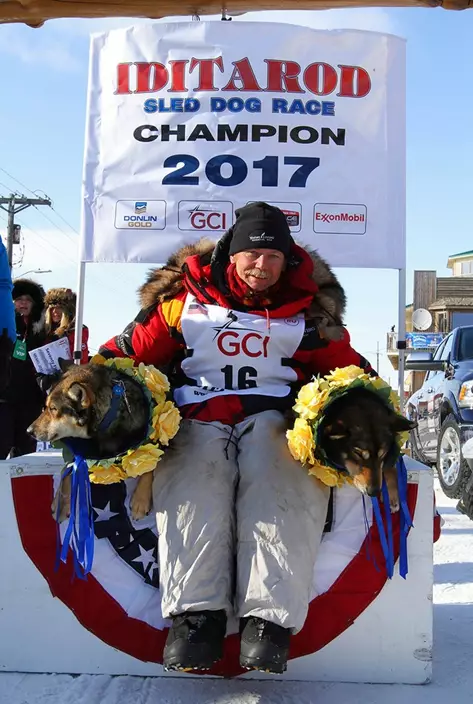
FILE - In this March 14, 2017, file photo, Iditarod champion Mitch Seavey of Sterling, Alaska, poses with his lead dogs Pilot, left, and Crisp under the Burled Arch after winning the 1,000-mile Iditarod Trail Sled Dog Race in Nome, Alaska. (AP Photo/Diana Haecker, File)
"If the human participants want to race to Nome, have at it," PETA spokeswoman Colleen O'Brien said. "But don't force these dogs to run until their paws are bloody and they die on the trail."
Race officials blame activists for using the manipulative information to pressure corporate sponsors like Wells Fargo, a longtime backer that severed ties to the Iditarod last spring.
Mitch Seavey, who is seeking a fourth Iditarod championship, said his son is the happiest he's seen him in months and is reveling in heavy snow in Norway. The elder Seavey said he himself is not going to be distracted by "all the noise," but is focusing on his dogs and the race ahead.
"There's been a lot of craziness, but it's the people who are insane," he said. "The dogs aren't crazy."
There's one bright spot for organizers: Optimal trail conditions. A warming climate in recent years has caused significant disruptions, including the rerouting of the 2017 and 2015 races hundreds of miles to the north because of dangerous conditions. As always, the race will begin with the customary ceremonial start in Anchorage, but the competitive portion beginning Sunday north of Anchorage will follow a southern route for the first time since 2013. Traditionally, southern and northern routes are alternated every year.
The late timing of the Iditarod Trail Committee's disclosure of the doping matter prompted the race's major sponsors to commission an independent consultant late last year. The consultant's report said the committee took months to release the information, causing concerns among many about a lack of transparency.
The consultant called on organizers to develop a plan to rebuild trust with mushers and sponsors.
"Both of these partner groups are on the verge of withdrawing their support for this race as a result of their distrust in this board," the report states.
More recently, a group of mushers named the Iditarod Official Finishers Club has called for the resignation of the Iditarod board president and other board leaders it says have conflicts. It also has criticized the board in its handling of the doping scandal. Hooley, the race CEO, said conversations are underway to replace some members.
Four-time winner Jeff King said he sees room for improvements after the doping controversy caught organizers "flat-footed," and he is ready for a significant change in the board leadership. But he doesn't believe the Iditarod is nearing the end of its lifespan and laughs when asked about it.
"You can count on from me, and many mushers that I would bet my life on, that we will continue to do the best we can for our dogs and the event," he said.



